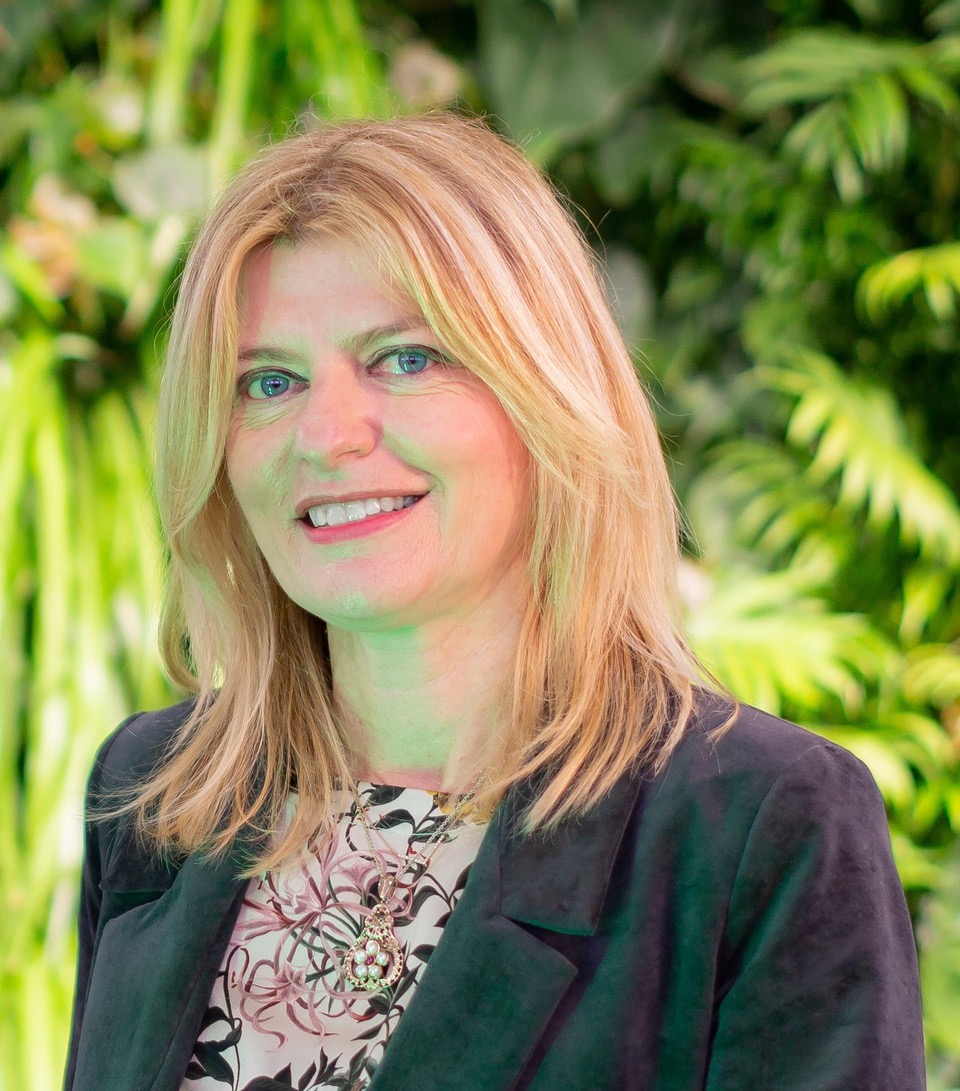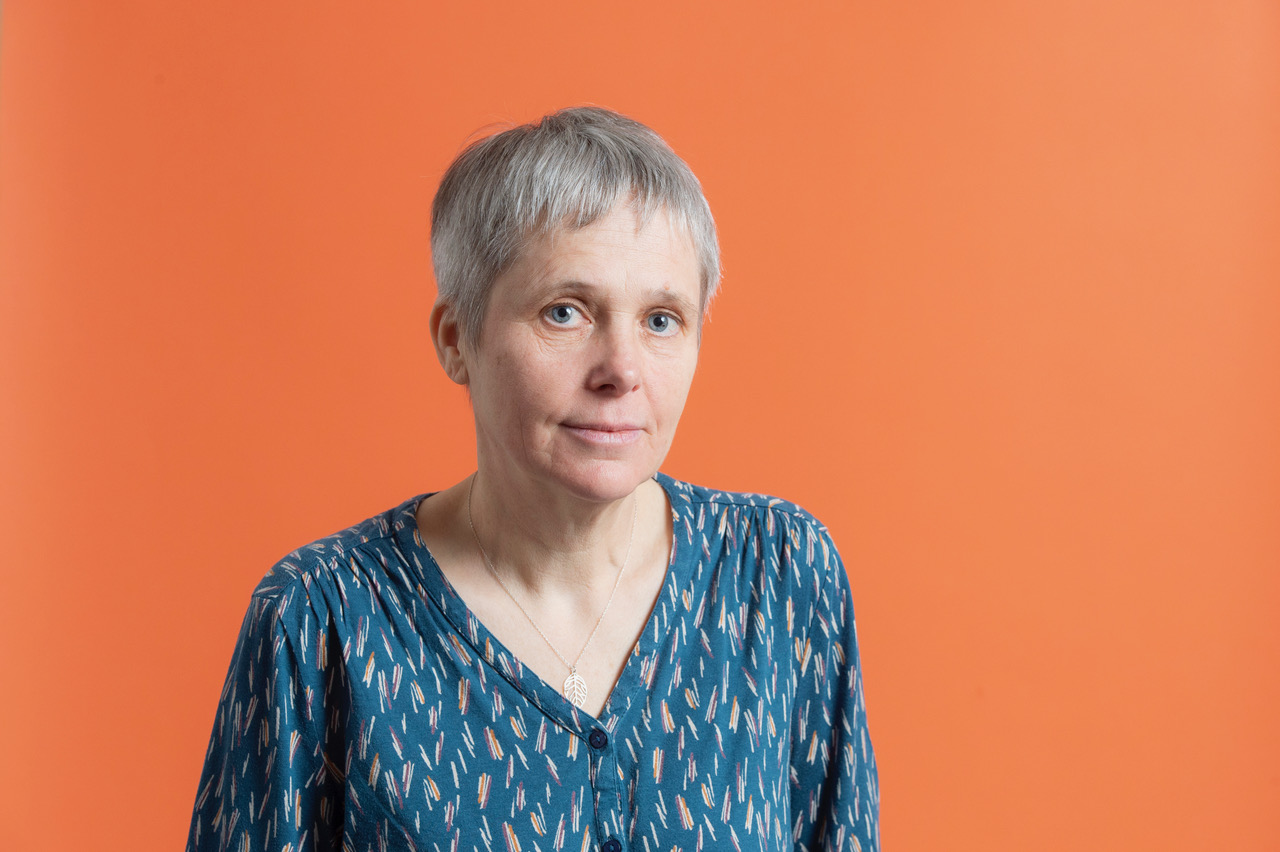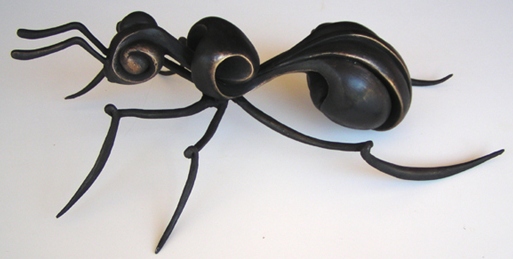
ANTS 2024
Fourteenth International Conference on Swarm Intelligence
October 9-11, 2024, Konstanz, Germany
Image copyright: Universität Konstanz

Image copyright: Universität Konstanz
 Call for papers in PDF format
Call for papers in PDF format  Call for abstracts (biology track) in PDF format
Call for abstracts (biology track) in PDF format
|
Universitätsstraße 10 78464, Konstanz, Germany. |
The conference takes place in the building ZT (aka VCC) of the University of Konstanz. It is located in the Northern parts of the university campus. The university can be reached easily by city bus (line 9a/b/c and line 11), see here for more detailed instructions. The city of Konstanz levies a tourist tax which in return allows for the free use of all busses (and selected other public transport options) during the stay.
|
ANTS 2024 (Attn: Dr.-Ing. Heiko Hamann) Konstanz, Germany |
email: heiko.hamann@uni-konstanz.de |
|
ANTS 2024 (Attn: Dr. Jonas Kuckling) Konstanz, Germany |
email: jonas.kuckling@uni-konstanz.de |
For accommodation we suggest to book directly at a hotel of your choice. There are many hotels in the area of the conference, which can satisfy any price requirements. The city of Konstanz levies a tourist tax which in return allows for the free use of all busses (and selected other public transport options) during the stay.
Additionally, we offer a limited number of pre-reserved hotel rooms. Please use the registration form to sign up for them. Please be aware that these hotels are provided by the Konstanz Tourist Office. Some of the hotels are outside of the city of Konstanz and the connection with public transport from these hotels to the university is quite limited.
| 8:30 - 16:00 | Registration | ||||||
| 8:30 - 9:30 | Welcome coffee | ||||||
| 9:40 - 10:00 | Welcome | ||||||
| 10:00 - 10:40 | Session 1: Oral presentations
|
||||||
| 10:40 - 11:10 | Coffee break | ||||||
| 11:10 - 11:50 | Session 2: Oral presentations
|
||||||
| 12:00 - 13:00 | Lunch | ||||||
| 13:00 - 14:00 | Invited plenary talk The Geometry of Decision Making Iain Couzin, Max Planck Institute of Animal Behavior |
||||||
| 14:00 - 15:00 | Session 3: Oral presentations
|
||||||
| 15:00 - 15:40 | Coffee break | ||||||
| 15:20 - 15:45 | Session 4: Short talks
|
||||||
| 16:40 - 18:40 | Poster session 1: Papers and previews presented in Sessions 1, 2, 3, and 4 | ||||||
| 20:00 | Conference dinner | ||||||
| 9:00 - 10:00 | Invited plenary talk Quality Diversity Approaches to the Evolution Of Robot Designs and Swarms Emma Hart, Edinburgh Napier University |
||||||||||
| 10:00 - 10:40 | Coffee break | ||||||||||
| 10:40 - 12:00 | Session 5: Oral presentations
| ||||||||||
| 12:00 - 13:00 | Lunch | ||||||||||
| 13:15 - 14:35 | Session 6: Oral presentations
|
||||||||||
| 14:35 - 15:15 | Coffee break | ||||||||||
| 15:15 - 16:15 | Session 7: Short talks
|
||||||||||
| 16:15 - 18:15 | Poster session 2: Papers and previews presented in Sessions 5, 6 and 7 | ||||||||||
| 19:00 - 20:00 | Social event | ||||||||||
| 9:00 - 10:00 | Invited plenary talk Harvesting Plant Intelligence for Soft Robotics Barbara Mazzolai, Istituto Italiano di Tecnologia (IIT) |
|||||
| 10:00 - 10:40 | Coffee break | |||||
| 10:40 - 12:00 | Session 8: Oral presentations
| |||||
| 12:00 - 13:00 | Lunch | |||||
| 13:15 - 14:15 | Session 9: Short talks
|
|||||
| 14:15 - 16:15 | Poster session 3: Papers and previews presented in Sessions 8 and 9 | |||||
| 16:15 - 17:15 | Award ceremony and closing | |||||
Thanks to the generous support of the Center for the Advanced Study of Collective Behavior (CASCB), applications for travel support are invited, to facilitate researchers from developing countries to attend the ANTS conference. Researchers and students from developing countries as determined by the IEEE Developing Country Listing are eligible.
To complete an application, an applicant is asked to provide:
To submit a travel grant application, send your complete application as a single PDF file to jonas.kuckling@uni-konstanz.de and heiko.hamann@uni-konstanz.de with the keywords "ANTS 2024 travel grant" in the subject line. For questions regarding the travel support, please contact the same addresses.
Applications are reviewed on a competitive basis with priority given to authors of accepted papers at ANTS.
In order for an award recipient to claim the travel grant they must provide proof of attendance (registration) and of travel (boarding passes and ticket receipt). Instructions regarding the reimbursement process will be provided at a later date.
The ANTS2024 registration fee is 450 EUR.
The conference fee includes:
Coffee breaks and a conference dinner will be offered by the organizing committee.
Abstract: In 1905 the biologist Edmund Selous wrote of his wonderment when observing a flock of starlings flying overhead “they circle; now dense like a polished roof, now disseminated like the meshes of some vast all-heaven-sweeping net...wheeling, rending, darting...a madness in the sky”. He went on to speculate “They must think collectively, all at the same time, or at least in streaks or patches — a square yard or so of an idea, a flash out of so many brains”. While the field of neuroscience has emerged to study the computational capabilities within an organism, far less is known about how social interactions connect brains together—and thus how sensing and information processing arises in such organismal collectives. Using new experimental technologies, including 'holographic' virtual reality for freely-moving animals, bio-mimetic robotics and artificial intelligence, I will present evidence that there exist fundamental geometric principles of spatiotemporal computation that transcend scales of biological organization; from neural dynamics to individual decision-making, and from individual decision-making to that at the scale of the collective. I will also show how this discovery may impact human-engineered systems, demonstrating that the evolved controller exhibits close-to-optimal performance in autonomous vehicle (terrestrial, airborne and watercraft) control, while requiring minimal sensing/computation and no system-specific tuning or optimization.
Bio: Iain Couzin is a founding Director of the Max Planck Institute of Animal Behavior and a Professor and Speaker of the Excellence Cluster “Centre for the Advanced Study of Collective Behaviour” at the University of Konstanz, Germany. Previously he was an Assistant and then full Professor in the Department of Ecology and Evolutionary Biology at Princeton University, and prior to that a Royal Society University Research Fellow in the Department of Zoology, University of Oxford, and a Junior Research Fellow in the Sciences at Balliol College, Oxford. His work aims to reveal the fundamental principles that underlie evolved collective behavior, and consequently his research includes the study of a wide range of biological systems, from neural collectives to insect swarms, fish schools and primate groups. In recognition of his research he has been recipient of the Searle Scholar Award in 2008, top 5 most cited papers of the decade in animal behavior research 1999-2010, the Mohammed Dahleh Award in 2009, Popular Science's "Brilliant 10” Award in 2010, National Geographic Emerging Explorer Award in 2012, the Scientific Medal of the Zoological Society of London in 2013, a Web of Science Global Highly Cited Researcher 2018-2022, the Lagrange Prize in 2019, the Falling Walls Life Sciences Award and the Gottfried Wilhelm Leibniz Prize (Germany's highest research honor) in 2022, and the Rothschild Distinguished Fellowship at the University of Cambridge in 2023.

Abstract: Plants thrive in virtually all natural and human-adapted environments, making them increasingly popular models for developing robotics systems due to their strategies of morphological and behavioral adaptation. This adaptability and high plasticity offer novel approaches to designing, modeling, and controlling artificial systems in unstructured scenarios. Simultaneously, the development of artifacts based on plant working principles reveals how plants promote innovative approaches for preservation and management plans, opening new applications for engineering-driven plant science. Environmentally mediated growth patterns (e.g., tropisms) serve as clear examples of adaptive behaviors demonstrated through morphological phenotyping. Plants also establish networks with other plants through subterranean roots-fungi symbiosis, utilizing these networks to exchange resources or warning signals. This discussion delves into the functional behaviors of plants and their movement capabilities as models to build adaptive soft robots for environmental exploration. In fact, plants can provide engineers with the rules to design and develop functional embodiments and energy-efficient behaviors, which are key for artificial machines to better navigate unstructured and challenging environments. More specifically, I will explain how plants offer new insights to generate multi-functional materials for morphological adaptation and computation, mechanisms for moving-by-growing, strategies for climbing and adhesion, as well as new forms of energy. Finally, I will discuss how plant communication solutions can inspire multi-sensory information processing and the distributed architecture of functionalities.
Bio: Barbara Mazzolai is the Associate Director for Robotics and the Director of the Bioinspired Soft Robotics Laboratory at the Istituto Italiano di Tecnologia (IIT), Genoa. From February 2011 to March 2021, she served as the Director of the IIT Center for Micro-BioRobotics (CMBR). She earned her Bachelor's degree in Biology (with Honours) from the University of Pisa, Italy, and obtained her Ph.D. in Microsystems Engineering from the University of Rome Tor Vergata. Between July 2012 and 2017, she held the position of Deputy Director for the Supervision and Organization of the IIT Centers Network. In 2017, she was a Visiting Faculty at the Aerial Robotics Lab, Department of Aeronautics, at Imperial College London. Since 2024, she has been a contract professor for a course in soft robotics in the Department of Mechanics at the Polytechnic of Milan. Barbara Mazzolai is a member of the Scientific Advisory Board (SAB) of the Max Planck Institute for Intelligent Systems (Tübingen and Stuttgart, Germany), of the SAB of the Max Planck Queensland Centre (MPQC) for the Materials Science of Extracellular Matrices, as well as of the Advisory Committee of the Cluster on Living Adaptive and Energy-autonomous Materials Systems - livMatS (Freiburg, Germany). Her research work revolves around bioinspired soft robotics, where she combines principles from both biology and engineering to advance technological innovation and scientific knowledge. She has been the Coordinator of several EU-funded projects in this field, including PLANTOID, GrowBot, and I-SEED. In May 2021, she began her European Research Council (ERC) Consolidator Grant titled "I-Wood," focusing on Forest Intelligence: robotic networks inspired by the Wood Wide Web. Throughout her career, she has received numerous awards for her contributions, including the Marisa Bellisario Award and the Medal of the Italian Senate. She is an author and co-author of more than 260 papers published in international journals, books, and conference proceedings.

Bio: Professor Emma Hart has worked in the field of Evolutionary Computing for over 20 years. Her current work is mainly centred in Evolutionary Robotics, bringing together ideas on using artificial evolution as tool for optimisation with research that focuses on how robots can be made to continually learn, improving performance as they gather information from their own or other robots' experiences. The work has attracted significant media attention including recently in the New Scientist, and the Guardian. She gave a TED talk on this subject at TEDWomen in December 2021 in Palm Springs, USA which has attracted over 1 million views since being released online in April 2022. She was the Editor-in-Chief of the journal Evolutionary Computation (MIT Press) from 2017-2024 and an elected member of the ACM SIG on Evolutionary Computing. In 2022, she was honoured to be elected as a Fellow of the Royal Society of Edinburgh for her contributions to the field of Computational Intelligence and was awarded the ACM SIGEVO Award for Outstanding Contribution to Evolutionary Computation in 2023.

Continuing with a tradition started at ANTS 2002, the "Best Paper Award" at ANTS 2024 consists of a sculpture of an ant specially made for the ANTS conference series by the Italian sculptor Matteo Pugliese.

Oral presentations for accepted full papers will last 20 minutes sharp (15 minutes presentation plus 5 minutes for questions-and-answers).
Oral presentations for accepted short papers will last 15 minutes sharp (10 minutes presentation plus 5 minutes for questions-and-answers).
Oral presentations in the biology track will last 10 minutes sharp (6 minutes presentation plus 4 minutes for questions-and-answers).
A computer running PowerPoint and Acrobat Reader will be available for your presentation.
You can use this computer for your presentation or bring your own laptop.
Papers presented orally will be also presented during the poster session on the same day of the presentation.
Please refer to the on-line program for the details.
Posters should be of size A0 portrait. There is no standard template for the poster, every author can choose what best fits their work. Material to fix the poster on the stand will be available.
Papers that are not presented orally will be introduced
by the author in a 2 minute highlight, using a SINGLE
slide. This slide must be sent to us in advance. We will
preload this slide onto the computer and project it for
you during your presentation.
Accepted papers are to be revised and submitted as a camera-ready version. Reviewers’ comments should be taken into account and should guide appropriate revisions. The camera-ready submission must include the compiled PDF and all source files needed for compilation—including the LaTex file, reference file, and figures.
By submitting a camera-ready paper, the author(s) agree that at least one author will attend the conference and give a presentation of the paper. At least one author must be registered by the deadline for camera-ready submissions.
Camera-ready submissions that do not comply with all given requirements might have to be excluded from the conference proceedings.
After formatting the paper as explained below, please follow the subsequent instructions for submitting a zip/tar file that contains your camera-ready paper sources:
Deadline for submission: June 10, 2024
You must fill in and sign the  Springer's copyright form.
The form should be emailed to ants.conf@gmail.com with the subject:
“Copyright form paper <paper number> - <last name of first author>”.
Springer's copyright form.
The form should be emailed to ants.conf@gmail.com with the subject:
“Copyright form paper <paper number> - <last name of first author>”.
Please make sure to include the following information in the completed form:
Papers must be prepared in the LNCS Springer LaTeX style, using the default font and font size. Authors should consult Springer’s authors’ guidelines and use their proceedings template for LaTeX, for the preparation of their papers. Please download the LNCS Springer LaTeX template package (zip, 322 kB) and authors' guidelines (pdf, 147 kB) directly from the Springer website. The LaTeX class and references style (llncs.cls and splncs04.bst) included in this package should not be modified. Please also download and consult the ANTS 2024 sample LaTeX document (zip, 129 kB), which shows the correct options to use within the Springer template.
Your submission should be uploaded as a compressed archive (zip, tgz), containing the final camera-ready versions of the following:
Figures should be in their original vector format (pdf, eps), if applicable. Otherwise, figures provided in raster format (png, jpeg, tiff, bmp) must be high-resolution (if including linework, at least 800 dpi at the final size, otherwise, at least 300 dpi at the final size).
Although figures in the digital proceedings will be in full color, the print proceedings of ANTS 2024 will be printed in grayscale. Authors should therefore ensure that their figures will be appropriately legible when printed in grayscale.
Springer encourages authors to include their ORCIDs in their papers. In addition, the corresponding author of each paper, acting on behalf of all of the authors of that paper, must complete and sign a Consent-to-Publish form. The corresponding author signing the copyright form should match the corresponding author marked on the paper. Once the files have been sent to Springer, changes relating to the authorship of the papers cannot be made.
Full-length Papers are strictly limited to 11 pages + references, and Short Papers are strictly limited to 7 pages + references.
These page limits include figures, tables, and all supplementary sections (e.g., Acknowledgements). The only exclusion from these page limits is the reference list, which should have an appropriate length with respect to the state of the art.
Extended Abstracts are strictly limited to 2 pages (including references).
All page limits refer to papers prepared in the LNCS Springer LaTeX template, according to the instructions provided here. Do not modify the template defaults, such as those for margins, line spacing, or font size.
Submissions must be prepared in LaTeX, and the source files (tex, bib, bbl) must be provided. Authors
should use the LaTeX class and references style files (llncs.cls and splncs04.bst) as
provided in the LNCS Springer LaTeX template package. These files should not be modified. Also, do
not add formatting modifications to the main document (tex) to override the template defaults. Do
not use, for instance, any line spacing modifications (e.g., \vspace{} or
\\*[0pt]), or font size modifications (e.g., \fontsize{}). Please do not add any
special fonts. Please do not add packages or custom commands that change the formatting (e.g., do not use
the package subcaption, as it overrides the default caption formatting in the template).
During the final preparation of the proceedings, any formatting modifications in the main document (tex) will be removed if they do not match the template, potentially causing a change in paper length. Springer will also recompile all papers using their original llncs class file (llncs.cls). If authors make any modifications to the llncs file, their paper will not compile correctly in the final step, and cannot be included in the proceedings.
References must be formatted using the provided references style file (splncs04.bst). In this references style, in-text citations will appear as numbers, and the numbered reference list will be ordered alphabetically.
For further information, please refer to the class documentation included in the LNCS Springer LaTex package, and to the LNCS Springer authors’ guidelines.
It is mandatory that submissions to ANTS 2024 follow certain options within the LNCS Springer template. The ANTS 2024 sample LaTeX document (zip) shows the correct template options to use. These mandatory template options are as follows.
Running header:
\documentclass[runningheads]{llncs}.
\authorrunning{}, give the initial of the first name(s) and
the full surname. Always give the first author's name. If there are precisely two authors, then give
both the first and second authors' names. If there are more than two authors, use ‘et al.’ after the
name of the first author.
\titlerunning{Abbreviated paper title}.
Title and headings:
\newline command with the title.
Author names and affiliations:
\author{} field, provide the full first name (not only the initial).
\orcidID{} within the LaTex field \author{}.
\institute{} and
\email{} fields: department, faculty, university, company (if applicable), city, country,
and email address. Do not include the street address or ZIP code (it is not a postal address). The email
address of the corresponding author is mandatory to include in the \institute{} and
\email{} fields.
\institute{} entries, include an \index{} entry for each author,
giving the full surname, followed by the full first name(s).
For further details, please refer to the documentation of the llncs class.
Acknowledgements:
Keywords:
For contributions accepted as Extended Abstracts:
Conference proceedings are published by Springer in the LNCS series.
The journal Swarm Intelligence will publish a special issue dedicated to ANTS 2024 that will contain extended versions of the best research works presented at the conference.